In the immortal words of Shakespeare, “Life is as tedious as a twice-told tale vexing the dull ear of a drowsy man.” And yet, twice-told tales are often those readers and listeners love best. If the ear isn’t dull, but in need of comfort, those familiar stories are the ones returned to time after time.
But they do, on occasion, become dull if they are too familiar. Which is why Shakespeare retellings, especially in the SFF realm, “give delight, and harm not.” Shakespeare’s works delved into the realms of fantasy long before the modern age of fantasy novels, so it’s no surprise that speculative writers take inspiration from his works. Here’s a roundup of ten recent and forthcoming bard-inspired tales to take tedium to task.
These Violent Delights by Chloe Gong
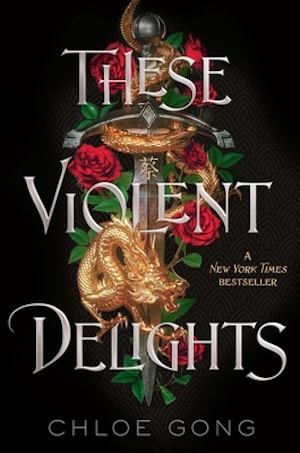
Star-crossed lovers appear all over fiction, and well beyond Shakespeare’s Romeo and Juliet, but that pair of youths in Verona have influenced a wealth of tales. Among these is the fantastical duology in an alternate 1926 Shanghai. Starring Roma Montagov, a Russian Gangster, and Juliette Cai, a socialite returned home to claim her own criminal empire, the duology blends gangsters and flappers with a cosmic horror stalking the city. The first novel opens with a scene similar in beat to Romeo and Juliet’s staging, with members of both gangs facing off (and, effectively, biting their thumbs, sir) at each other—only to have their argument interrupted by a creature out of the depths of the Huangpu River.
The elements are familiar, with namesake characters sprinkled throughout, urging readers to wish different fates for their favorites. Could Roma and Juliette actually survive through Our Violent Ends? The spin on the play, mixed with so many new elements, gives a refreshing look at an old story—one that readers will want to follow to its ultimate conclusion.
Want by Cindy Pon
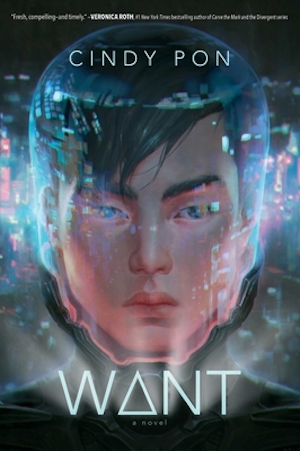
Rather than a historical setting for her take on Romeo and Juliette, Pon flings readers into a dystopian future, where Earth has become so polluted, only the rich can afford special suits to keep them safe and healthy. Jason Zhou is determined to close the gap between rich and poor by taking down the corrupt company that makes the suits. To do so, he and his friends kidnap the daughter of the corporation’s CEO: Daiyu, a woman he should absolutely not fall in love with. But there it is: these two young people from two different worlds fall for each other, and their romance will either bring down or save the city.
While the correlation between Want and Romeo and Juliet is more of a stretch—Pon’s focus is far more on the environmental disaster and the desire of Jason and his peers to bring down the hegemony that costs so many lives—the romance is important to the story, and Jason’s friends have similar loyalty and dynamics to Mercutio and Benvolio: playful, but stalwart when it comes to the crunch.
Prince of Cats by Ron Wimberly
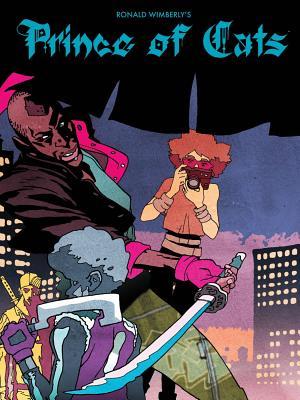
What if you took Romeo and Juliet, centered it on Tybalt, and gave it a settling like 1980s Brooklyn mixed with Blade Runner? That’s where Wimberly’s graphic novel starts. Featuring gangs in sword fights with a hip hop backbeat, Prince of Cats shows the Capulet gang dancing over the rooftops in pursuit of their Montague enemies—with the cast all the while speaking in iambic pentameter. While the shift in main characters means a departure from the plot of the play, the stylistic speech patterns give this one extra points for bardic inspiration.
Miranda and Caliban by Jacqueline Carey
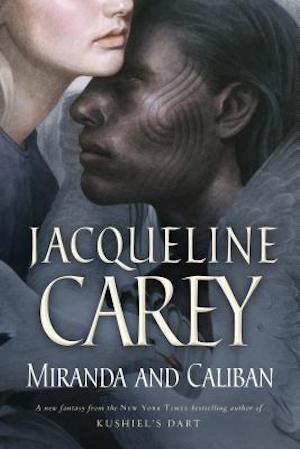
Sometimes a retelling doesn’t need to be set in a different location, time period, or genre. Sometimes it just needs to explore characters who seem to get an unfair deal in the play. The Tempest features two very lonely characters—Miranda and Caliban—who are effectively prisoners of the wizard and deposed duke Prospero on an enchanted isle. Though Miranda is Prospero’s daughter and given what luxury the wizard can provide, Caliban is enslaved, forced to serve Propsero’s whims. Carey explores the friendship that might have developed between the two characters—and follows them as they both seek their independence during the events of the play. The ending doesn’t diverge from the play, but knowing the inner thoughts of the characters, and giving Caliban a chance to read with greater sympathy, means that their ultimate fates are only more heart wrenching.
Miranda in Milan by Katharine Duckett
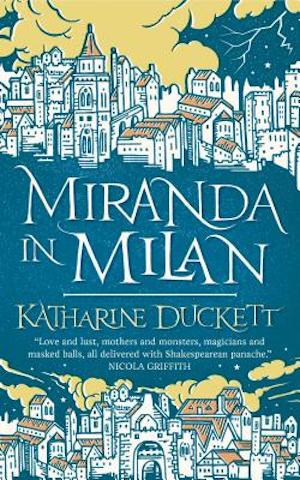
Miranda also stars in Duckett’s debut novella, which takes place as a sequel to The Tempest. In the play, Prospero pledges to give up his sorcerous ways, and Miranda is engaged to Prince Ferdinand, who will one day be King of Naples. But when they leave the isle, Miranda ends up in her father’s estate in Milan, with Ferdinand missing and everyone treating her as though she is a monster. Now surrounded by people but still very much alone, Miranda is at a loss for how to exist in this new world—until she befriends Dorothea, a servant and a Moor, who is just as much an outcast as Miranda. Feelings blossom between them, and the pair search for the truth behind Miranda’s own history, and her father’s new plots. Like Carey’s novel, here Prospero is the villain, and Miranda begins to come into her own as a driving force behind her own fate.
All Men of Genius by Lev AC Rosen
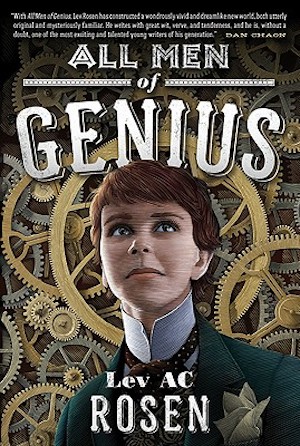
Borrowing the time period and feel from The Importance of Being Earnest, Rosen’s sideways steampunk retelling of Twelfth Night follows the story of Violet Adams (a parallel to Shakespeare’s Viola) as she hides her gender to attend a men-only college. Disguised as her brother Ashton, Violet soon finds herself in an awkward love triangle: she’s falling for young Duke Ernest, the head of the school, while the duke’s ward, Cecily, is falling for her. The Victorian setting, populated by automatons and airships, offers a platform for conversations about gender roles, sexuality, and genius, and how a young woman can challenge everyone’s expectations.
Doubt the Stars by Emily Selleck
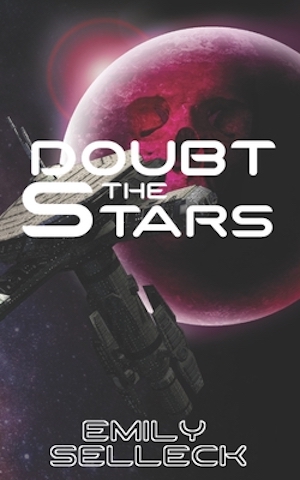
From Shakespeare in Steampunk, the next logical step is Shakespeare in Space, and Selleck’s retelling of Hamlet makes use of ghostly holograms and an enclosed space station to describe something rotten in D’marc. Crown Princess Henley knows her father has been murdered, but her desire to get revenge on his murderer is driving her away from her girlfriend, who believes she’s obsessed. The plot directly follows the play, but the characters—particularly Henley’s drive for justice—keep the story flowing to its inevitable, tragic end.
Shakespeare for Squirrels by Christopher Moore
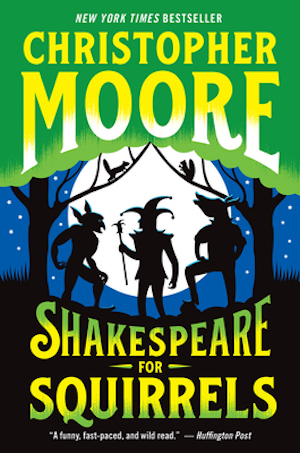
While many of Shakespeare’s favorites are known for their tragedy, Christopher Moore’s novels are always more focused on the comedy—even when retelling a tragic tale. Shakespeare for Squirrels is the latest in his “Fool” series, which began with Fool (2009), a retelling of King Lear from the perspective of Pocket, his court jester. While keeping the main plot, Moore recasts Lear into an uproarious and filthy comedy. After Pocket successfully instigates his boss’s downfall, he sails with pirates in The Serpent of Venice (2014) before landing on the shores of Greece, where he immediately becomes embroiled in the plot of Midsummer Night’s Dream. Luckily for Pocket, Oberon’s own jester, Puck, has been murdered, and if Pocket can solve the crime, he’ll get the job replacing Puck in the Fairy King’s court. Mixing a noir mystery into the chaos of lovers in the woods and feuding fairy royals, Shakespeare for Squirrels takes the raunch already evident in the bard’s works and amplifies it to the absurd extreme.
“We Are Not All Alone Unhappy” by Cat Manning
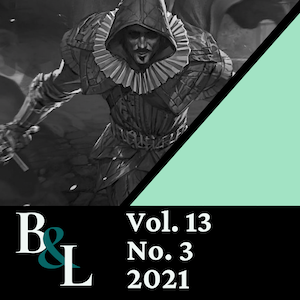
But what if you wanted to take Shakespeare’s characters and give them happy endings? What friendships or romances could you make to give them the fates they deserved? To answer that question, Cat Manning created “We Are Not All Alone Unhappy,” an interactive Twine narrative for Borrowers and Lenders: The Journal of Shakespeare and Appropriation that encourages readers to select two characters from different plays, pair them together, and imagine a conversation that sets things right. While the “game” officially ends when readers have discovered a successful conversation (or more) partner for each of the characters, it’s possible to stave off that success until each result is revealed. For a quick read that delves into Shakespeare with a deft critique (and humorous character studies), this is a hit.
Foul Lady Fortune by Chloe Gong
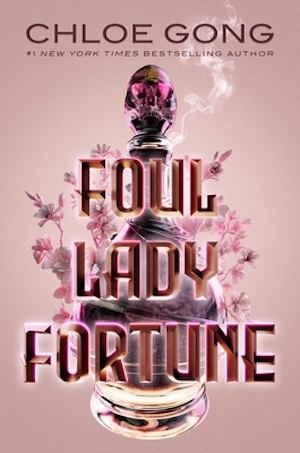
This list opened with Chloe Gong, and her forthcoming novel Foul Lady Fortune makes her the fitting ending as well. While As You Like It is a comedy of mistaken identity and lighthearted romance against a backdrop of expulsion from court, Gong’s retelling takes the bones of the story and mixes it with her twisted Shanghai setting. Here, Rosalind is something of a superhero: her fate in the These Violent Delights duology shows her saved from death, but at a cost. She no longer sleeps or ages, and she’s able to heal any wound. Now effectively immortal, she’s determined to give her life purpose, and she becomes an assassin serving her country. On a new operation, she must pose as the wife of spy Orion Hong. As the two agents work together, they keep secrets from each other—and discover new horrors that await Shanghai. If it sounds like a far cry from Shakespeare’s Rosalind instantly falling for Orion in a wrestling match, and then disguising herself as a boy who convinces Orion to woo “him” anyway, that’s all right—secret identities, conspiracies, and the dangers of a horror-laced 1930s Shanghai will be enough to hook readers into returning to Gong’s glamorous and gloriously brutal world.
***
All these authors, knowing how readers lov’d books, furnish’d readers with volumes they might prize above their own dukedoms …or, at least, prize the experience of seeing Shakespeare through new eyes.
Alana Joli Abbott is the author of interactive novels for Choice of Games and the co-editor of anthologies including Where the Veil Is Thin, Bridge to Elsewhere, and Never Too Old to Save the World from Outland Entertainment.










